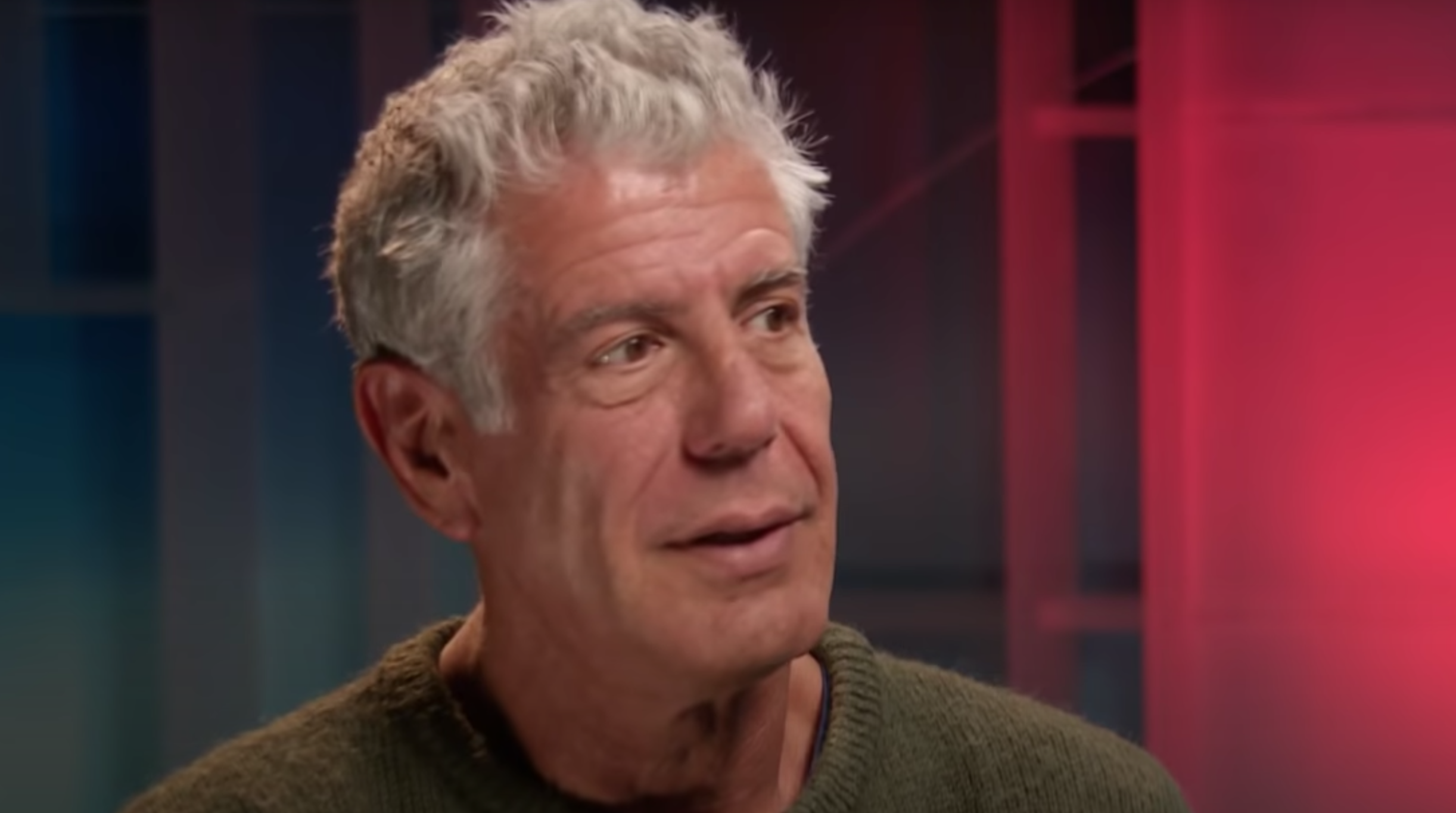I’m told that yesterday’s HE riff about Morgan Neville‘s Roadrunner (“Obvious Factor in Bourdain Suicide Ignored?“) gets into the whole Asia Argento mishegoss much more than than the film. The
story about Argento having allegedly seduced the 17 year-old Jimmy Bennett is shown in one brief headline. The affair with Hugo Clement isn’t mentioned at all.
There’s nonetheless a weird obsession that pokes through in two reviews of the film — Eric Kohn’s in Indiewire, Matt Goldberg’s in Collider. Both claim there’s something unseemly about the movie trying to “solve” the mystery of Bourdain’s suicide.
Why is it wrong for Roadrunner to examine Bourdain’s suicide and try to figure what happened? Are we not allowed to ask those questions? Or think about them? Are we invading the ghost of Anthony Bourdain‘s safe space? What the hell else is a documentary supposed to do but ask questions and, if possible or reasonable, look deeper?
You really never know where the next stupid woke umbrage is going to come from. The sensitives and their arbitrary dumbshit “moral” rules. This fucking generation of woke idiots is going to kill us.
Collider‘s Matt Goldberg: “A suicide is not a crime to be solved. It’s a tragic circumstance going to the depths of another person’s psyche. You can’t reason it out because no reason will be satisfying. There’s no conclusion where you will get an audience to think, ‘Oh, well I guess suicide made sense in this regard.’ It cannot comfort, and it cannot illuminate. And yet Neville attempts to reason out why Bourdain would take his own life as if that’s a question that needed to be answered beyond anyone’s morbid curiosity.
“This leads Roadrunner down a deeply dark road where the film basically insinuates that Bourdain’s romance with actor and filmmaker Asia Argento was personally destructive to his well-being. If this is a film about Bourdain and his legacy, then why do we need scenes showing footage of an episode directed by Argento that Bourdain’s coworkers felt were not up to the standards they had set? Why do we need talking heads alluding to tabloids that say Argento was cheating on Bourdain and that drove him to despair and ultimately suicide because his personality operated at extremes?
“Even if you have one talking head say, ‘I don’t want to pin a man’s suicide on the woman in his life,’ the fact that Roadrunner is even broaching that as a possibility is deeply gross and incredibly irresponsible.”
Indiewire‘s Eric Kohn: “Roadrunner enters dicey territory during its final act, as it delves into Bourdain’s relationship with actress Asia Argento, who’s absent from the movie as a participant but appears in ample documentary footage.
“By all indications, Argento brought Bourdain to a new plane of happiness in his final months, when he hired her to direct an episode in Hong Kong shortly before his death. It also gave him a renewed sense of purpose as he became a public voice in the #MeToo scandal with Argento’s revelations about being raped by Harvey Weinstein.
“Roadrunner, however, bursts the sunny image of Bourdain’s new partner with claims from his former collaborators that he cut them off in the midst of the relationship; then the movie goes one step further by hinting at the idea that his suicide was an erratic act of revenge as the romance went south. Despite one subject who makes it clear Argento isn’t truly to blame — Tony killed himself, after all — it’s still a queasy passage that comes dangerously close to exploiting the scenario with a murky explanation assembled from secondhand accounts.”

